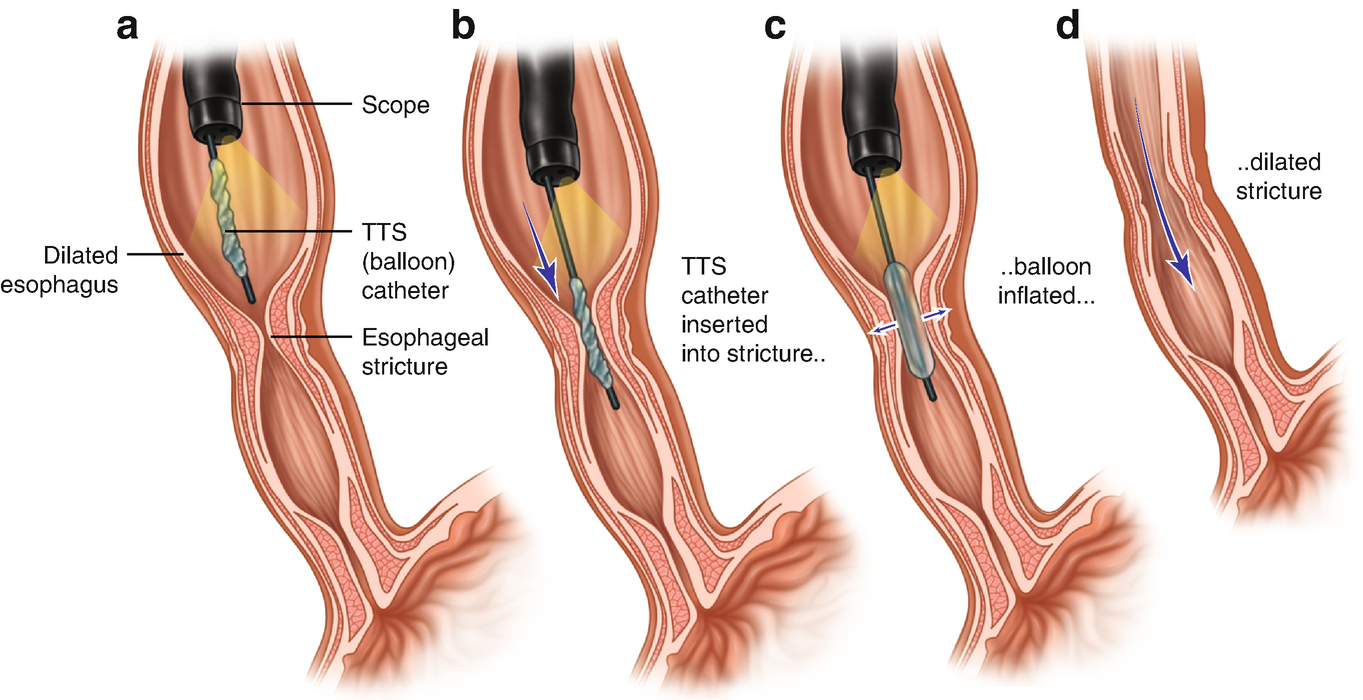Esophageal Colonic Stricture Dilation

Benign esophageal stricture describes a narrowing or tightening of the esophagus. The esophagus is the tube that brings food and liquids from your mouth to your stomach. “Benign” means it’s not cancerous.
Benign esophageal stricture typically occurs when stomach acid and other irritants damage the lining of the esophagus over time. This leads to inflammation (esophagitis) and scar tissue, which causes the esophagus to narrow.
Although benign esophageal stricture isn’t a sign of cancer, the condition can cause several problems. Narrowing of the esophagus may make it difficult to swallow. This increases the risk of choking. It can also lead to complete obstruction of the esophagus. This can prevent food and fluids from reaching the stomach.
Benign esophageal stricture can happen when scar tissue forms in the esophagus. This is often the result of damage to the esophagus. The most common cause of damage is gastroesophageal reflux disease (GERD), also known as acid reflux.
GERD occurs when the lower esophageal sphincter (LES) doesn’t close or tighten properly. The LES is the muscle between the esophagus and the stomach. It normally opens for a short amount of time when you swallow. Stomach acid can flow back up into the esophagus when it doesn’t close completely. This creates a burning sensation in the lower chest known as heartburn.
